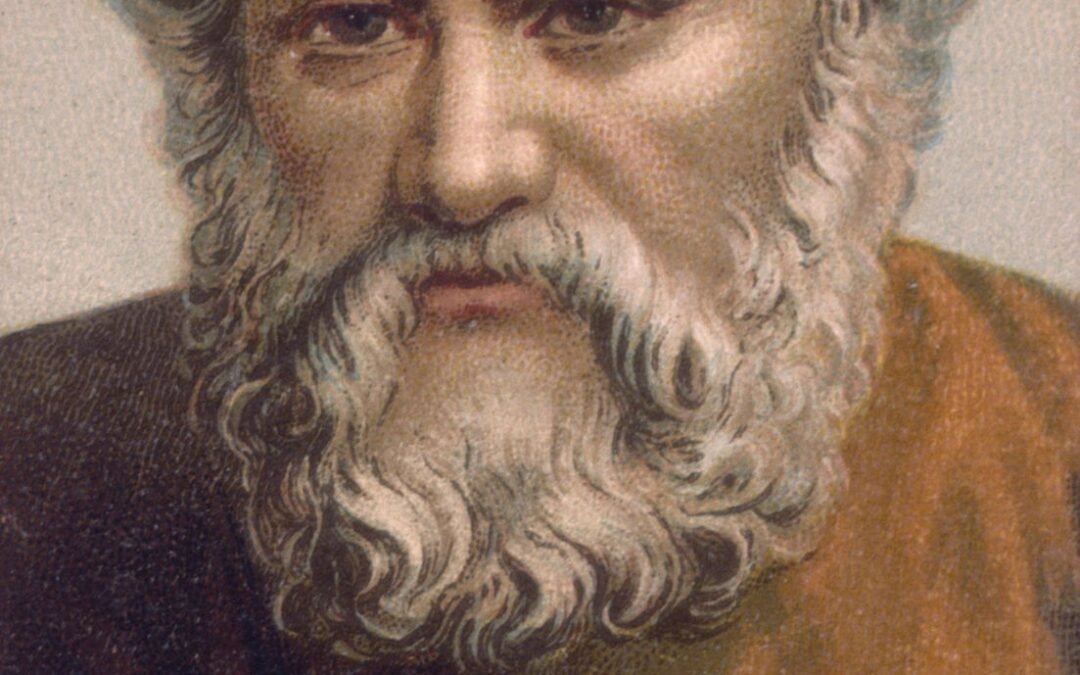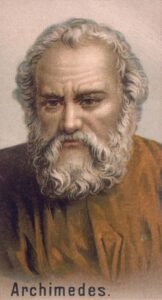
Archimedes
Archimedes, the renowned ancient Greek mathematician, physicist, engineer, and inventor, left an indelible mark on the history of science and mathematics. Born in Syracuse, Sicily, around 287 BCE, his contributions span a wide array of fields, from geometry to hydrostatics and mechanics.

Portrait dessin? d’Archim?de de Syracuse, scientifique grec de Sicile, 3?me si?cle avant J.C. (Photo by API/Gamma-Rapho via Getty Images)
One of Archimedes’ most famous contributions is his principle of buoyancy, often demonstrated by the anecdote of his Eureka moment in the bath. He realized that an object submerged in a fluid experiences an upward force equal to the weight of the fluid displaced by the object. This principle, known as Archimedes’ principle, laid the foundation for understanding buoyancy and the behavior of floating objects, crucial in fields like shipbuilding and hydrodynamics.
In addition to his work on buoyancy, Archimedes made significant advances in geometry. He calculated the value of pi more accurately than ever before, using a method of inscribed and circumscribed polygons to approximate the circumference of a circle. This laid the groundwork for future developments in calculus and the study of curves.
Archimedes’ work in mechanics also stands out. He formulated the laws of levers and pulleys, demonstrating the principle of mechanical advantage, which continues to underpin engineering design to this day. His treatise “On the Equilibrium of Planes” explores the balance of forces and moments, providing foundational insights into statics.
Furthermore, Archimedes made pioneering contributions to the field of calculus, particularly integral calculus, through his method of exhaustion. This method allowed him to calculate areas and volumes of curved shapes by approximating them with polygons. His rigorous approach to mathematical problem-solving foreshadowed the methods of modern calculus.
Beyond his mathematical and scientific achievements, Archimedes was also an ingenious inventor. He designed various machines and devices, including the Archimedes screw, a device still used today for lifting water. His inventions were often practical solutions to real-world problems, reflecting his deep understanding of physical principles and his desire to improve everyday life.
Archimedes’ legacy extends far beyond his own time, influencing countless mathematicians, scientists, and engineers throughout history. His methods and discoveries continue to inspire new generations of researchers, serving as a testament to the enduring power of human intellect and curiosity. Archimedes remains a towering figure in the pantheon of scientific thought, his contributions serving as beacons of inspiration for all who seek to unravel the mysteries of the universe.




 ನಿಖರತೆ ಮತ್ತು ಸ್ಥಿರತೆ
ನಿಖರತೆ ಮತ್ತು ಸ್ಥಿರತೆ